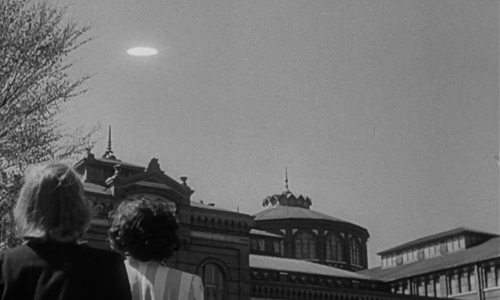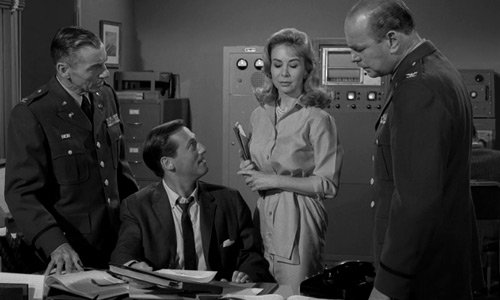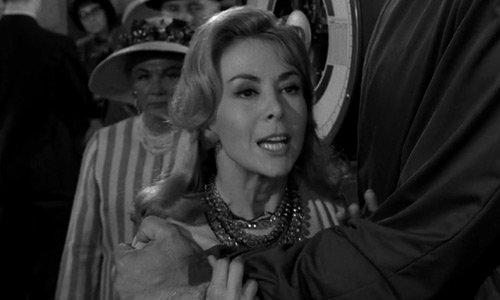Aliens arrive on Earth to give humanity a bunch of cool, free stuff…but is it all really free?

Episode Summary
Aliens have arrived on earth. Tall aliens that speak telepathically. Aliens in flying saucers. But most importantly, peaceful aliens that want to uplift humanity: no more war, no more hunger, just happiness and joy.

Humanity is, naturally, skeptical at first, but an alien Kanamit representative arrives and speaks to the United Nations, then submits to a lie detector test. Yep, everything’s legit. Come on down, alien guys!

Troves of alien ships arrive. Is troves the tight word? Let’s say yes. Anyway, the Kanamits keep their promise and Earth becomes a peaceful Utopia.

Translating the Book
The viewpoint character in this episode is Michael Chambers, a cryptographer who’s a little skeptical of the alien takeover. He has Patty, a member of his staff, translate alien writing on a book the Kanamit representative left behind. It says “To Serve Man.” Great.

Chambers decides to check out the alien homeworld, so prepares to board one of the many passenger ships headed there. At the last minute, Patty comes running in. She discovered the true meaning behind the book’s title: “To Serve Man…it’s a cookbook!”

It’s too late. As the passenger ship heads for the Kanamit homeworld, Chambers awaits his final fate.

Thoughts
A classic episode, parodied notably in the first Simpsons Treehouse of Horror episode. It has a good message, to challenge perceptions and that if something is too good to be true, it usually is; nothing in life is free. But it’s lost its bite with time. Since this episode first aired, we’ve had so many similar stories, notably V , and now audiences automatically assume friendly alien visitors have sinister intentions. Polygraph tests aren’t enough to assuage fears now!

I wish we could have seen Chambers’ arrival on the alien planet and the reactions of his fellow passengers when they learned they were going to be Kanamit food. And what was really missing from this episode was a debate between Chambers and the Kanamits at the end, with the latter defending their position: “How is this different from you humans enslaving cattle for sustenance? Are we not the superior lifeform in this instance? Do we not deserve to survive?” That sort of thing.






For me the main message of the story is the importance of timely and adequate translation.